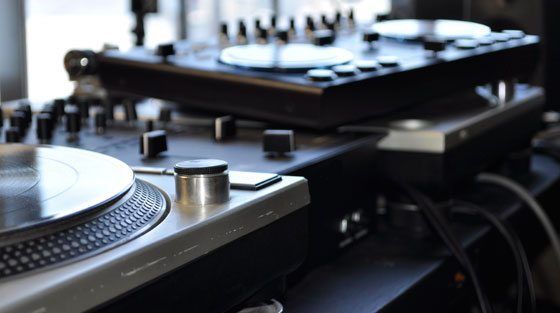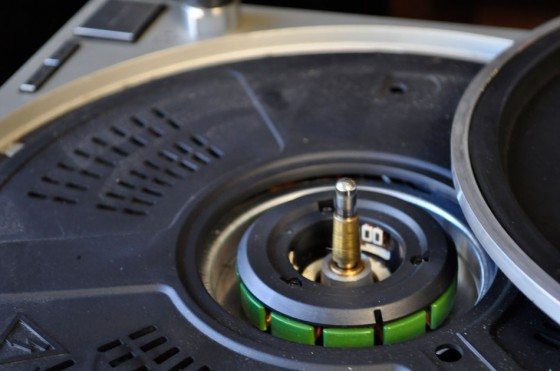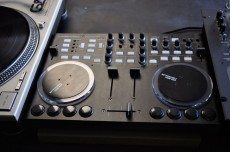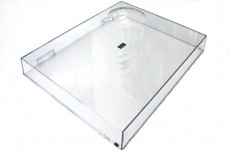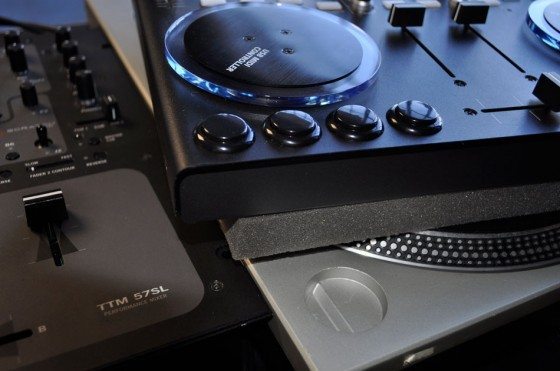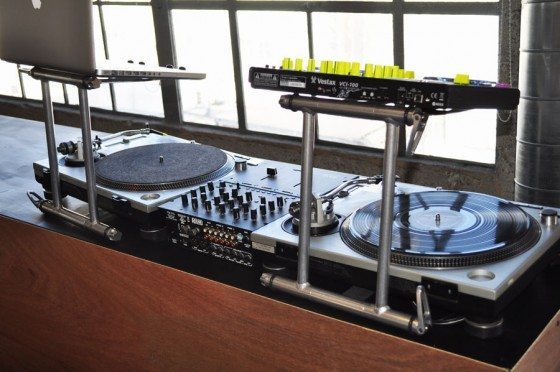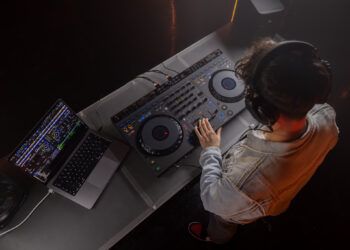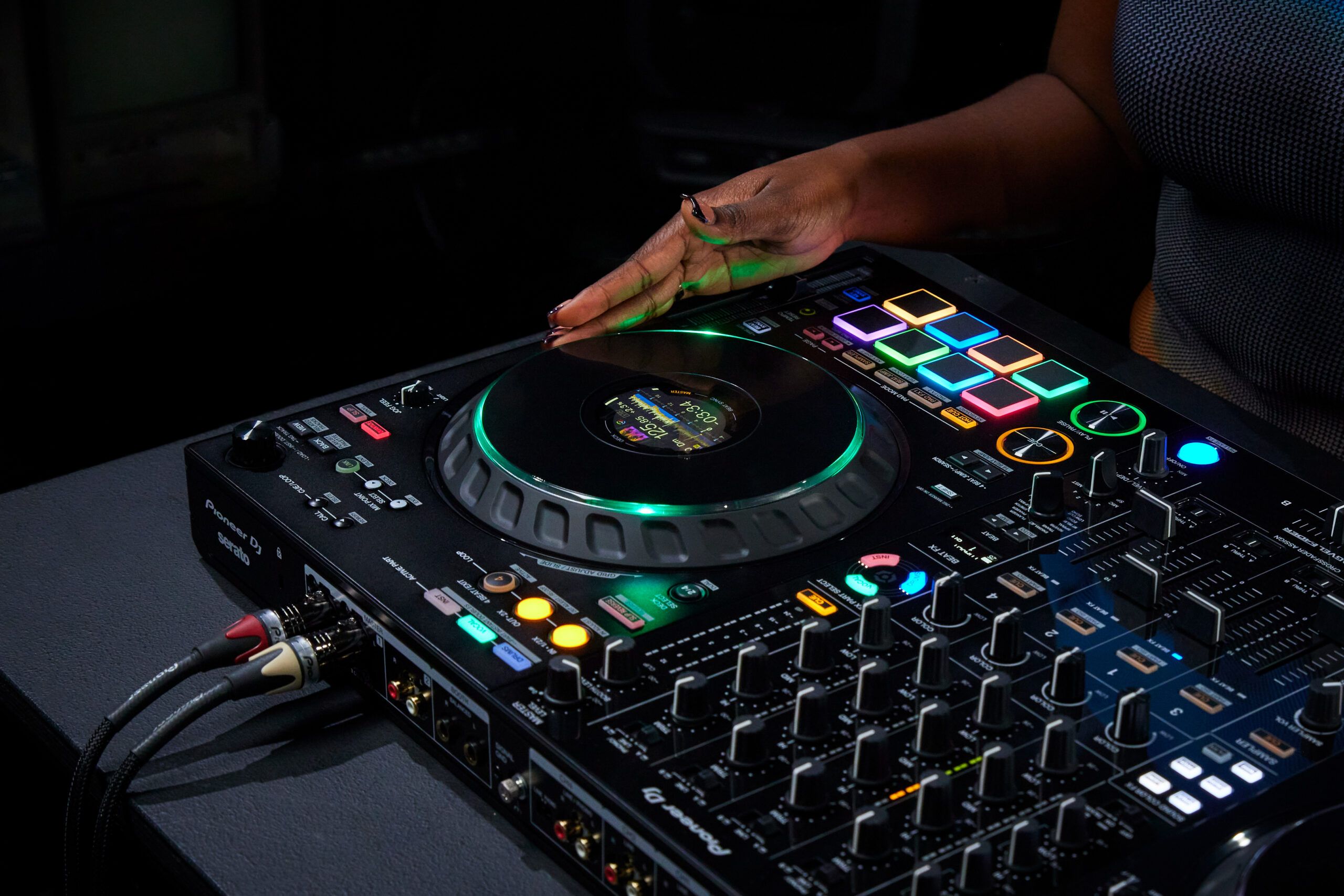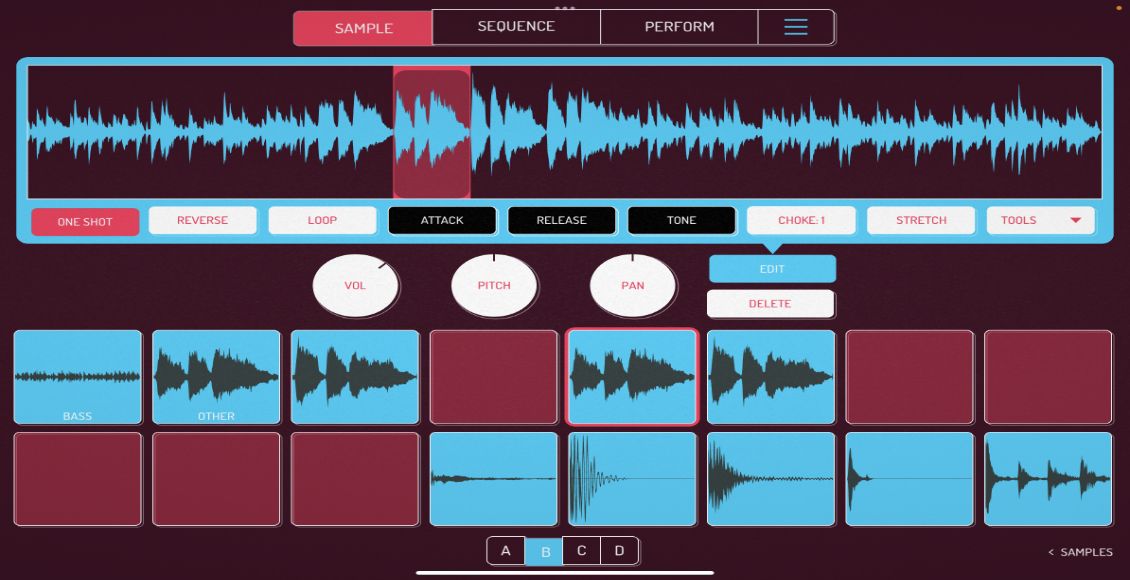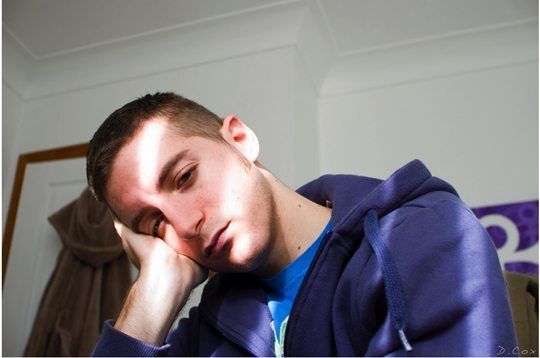While I too am a digital DJ and love controllers like the next guy, it pains me when I see controllerists set up their gear directly atop my turntables. Although the word ‘turntable’ contains the word ‘table,’ it is not one and shouldn’t be treated as such. Many old-school DJs, like myself, consider the turntable an instrument. Putting even a humble mini controller atop one then pressing away is akin to using a guitar as a coat hanger or a trumpet as a vase. So to keep everyone in DJ land on good terms, here are a few alternatives that will help save a turntable or two.
Turntables are one of the most delicate control surfaces out there and can easily be damaged when anything disturbs the tone arm or drive system. DJ turntables are operated by a system called “direct drive”, which is achieved with an electric motor in the body of the turntable surrounded by magnets. Since the outside edge of the platter floats in the turntable body, all pressure is leveraged on a small bearing and brass collar at the post. These components are designed to bear relatively little weight, and will get damaged if treated poorly. Those giant magnets under the platter have been known to damage hard drives, so you might want to think twice about storing your laptop there.
As a DJ who first used Final Scratch many years ago and now Scratch Live, I can remember when there was no place for laptops in the club. While laptop stands are now commonplace, I understand that as a burgeoning digital art there is little support, literally, for your platform. Until the clubs catch up, here are a few tips that can help provide you with a safe and stable surface for your gear, while protecting the gear that other DJs rely on work properly.
Move the Turntable
Moving a turntable to a safe place in the DJ booth is the best option. This is the optimum set up, because it provides you with the most stable surface possible. It also places your controller laptop and the club’s mixer in best ergonomic position possible with the mixer and controller at the same level. This may seem like an extreme measure that would piss off the turntablists, but to be honest, you will be much more respected for taking the time to get things set up properly. Make sure you attempt this during sound check and not in the middle of a set if at all possible.
Plastic Turntable Covers
Technics 1200’s come with nifty plastic covers that can be placed over the turntable and provide a somewhat flat surface on which to place your gear. Unfortunately, the plastic covers are usually missing, broken or without hinges. When there are no hinges, they tend to fall off the edge of the turntable quite easily, so use this option with caution.
Foam Rubber Pad
I’ve seen Ean pull this trick from way back. Carry a piece of foam rubber that can be set over the turntable on which you can place your controller. This will provide you with a cushy surface and dampen the “lazy susan” effect of your controller rotating on the deck. Its still does not not solve the core problem of weight, but it more effectively distributes the pressure across the entire surface, making this choice fairly safe and a lot easier to look at.
Keyboard/Laptop Stand
Not every one wants to carry a laptop stand to their gigs, but this might be the best solution of all provided there is space in the booth. They are after all designed specifically for the job! If space is a concern, there are many compact laptop stands that can be used to float your gear above the turntable without moving anything. We did a review of the best options here.
Be Prepared
However you choose to set up, make sure that you allow for a smooth transition between you and the DJ before and/or after you. Communicate clearly and early with your fellow DJs to formulate strategies for the changeovers. Bring at least one long piece of music on cd or vinyl that you can use to set up and possibly another for the transition to the next DJ. Take care when replacing turntables and CDJs and make sure you leave the DJ booth in as good or better shape than you when entered it. Remember, it’s good gear karma to treat other people’s gear with the respect you would give your own. Everyone should also read the epic post on DJ Etiquette, which covers these and many other scenarios.
About the Author: DJ Mei-lwun is based in San Francisco, California and has held numerous residencies in the past 15 years. An early adopter of DJ technology, Mei-Lwun was one of the founding members of Soulstice and popularized the mash-up movement in San Francisco.


